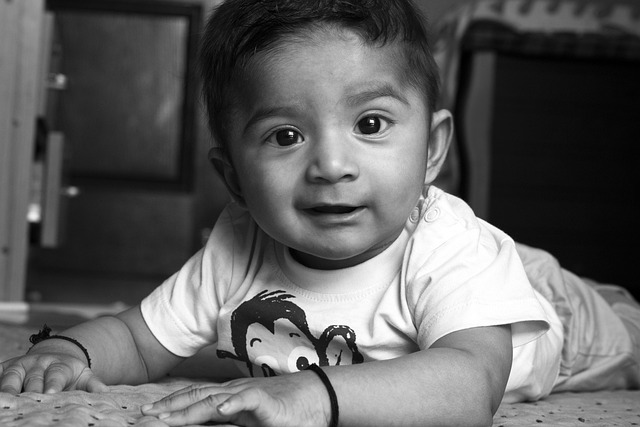Parental rights, defined by statutes across jurisdictions, protect the relationship between parents and children during custody proceedings. These rights, which include decision-making authority and custody, are crucial for shaping a child's future. In divorce or child protection cases, courts determine the best interests of the child, granting sole or shared custody and adjusting visitation rights while preserving parental rights. Legal strategies, clear parenting plans, and open communication between parents and children help protect these fundamental rights, ensuring stability and respect for both parents' roles in their offspring's lives.
In any custody dispute, protecting parental rights is paramount. This article delves into the intricate legal landscape surrounding parental rights, exploring how custody proceedings can impact these rights and offering strategic insights to safeguard them. From understanding the legal perspective to implementing effective communication during battles, we provide a comprehensive guide. Learn essential strategies to maintain familial connections while navigating the complexities of custody law, ensuring the best outcomes for both parents and children involved.
- Understanding Parental Rights: A Legal Perspective
- The Custody Proceedings: How They Affect Parental Rights
- Protecting Parental Rights: Legal Strategies and Safeguards
- Maintaining Communication and Relationships Amidst Legal Battles
Understanding Parental Rights: A Legal Perspective

Parental rights are a cornerstone of family law, encompassing a range of legal protections designed to safeguard the relationship between parents and their children. From decision-making authority over major life events to the fundamental right to maintain custody, these rights are vital for ensuring the well-being and stability of families. In the context of custody proceedings, understanding one’s parental rights is crucial as it empowers parents to actively participate in shaping their children’s futures.
Legally, parental rights are often defined and protected by specific statutes and regulations, which vary across jurisdictions. These laws aim to provide a framework for resolving disputes related to child custody, visitation, and foster care. By recognizing and upholding parental rights, the legal system ensures that parents’ voices are heard, their choices are considered, and their ability to raise their children is respected during these challenging times.
The Custody Proceedings: How They Affect Parental Rights

Custody proceedings, whether it’s a contested divorce or a child protection case, significantly impact parental rights. During these legal processes, courts carefully assess and determine the best interests of the child, which can temporarily alter or, in some cases, permanently modify parental roles and responsibilities. This often involves granting sole or shared custody to one or both parents, with corresponding decisions on visitation rights.
In the heat of such proceedings, it’s crucial for parents to understand that their parental rights aren’t necessarily terminated but are rather subject to legal scrutiny and adjustment. The goal is always to ensure the child’s well-being and stability while navigating the complexities of family law. Every decision made during custody proceedings should be guided by what is in the best interest of the child, preserving and protecting the fundamental parental rights as much as possible under the circumstances.
Protecting Parental Rights: Legal Strategies and Safeguards

Protecting parental rights is a cornerstone in custody proceedings, aiming to safeguard the significant role parents play in their children’s lives. Legal strategies and safeguards are in place to ensure that decisions regarding child custody and visitation are made while preserving these fundamental rights. One key approach involves establishing clear and specific parenting plans, outlining responsibilities and time-sharing arrangements, which can be tailored to meet the unique needs of both parents and children.
Additionally, various legal mechanisms are available to defend against any attempts to undermine parental rights. These include challenging the validity of evidence, presenting a strong defense during court hearings, and requesting independent assessments or expert testimony. The involvement of experienced legal counsel is invaluable in navigating these complexities, ensuring that parental rights are not only protected but also advocated for throughout the custody proceedings.
Maintaining Communication and Relationships Amidst Legal Battles

In the midst of legal battles for custody, it’s easy for communication and relationships between parents and children to become strained. However, maintaining open lines of communication is crucial for preserving parental rights and fostering a sense of stability for the child. This can involve regular, structured visitation periods, as well as ongoing dialogue about the child’s needs, interests, and concerns. Legal professionals can play a significant role in facilitating these conversations, ensuring they remain respectful and productive despite the heightened tensions.
Despite the challenging environment, it’s important to remember that both parents have legitimate parental rights that must be respected. This includes the right to be involved in major decisions affecting their child’s life, such as medical care, education, and extracurricular activities. By actively participating in these discussions and staying engaged, parents can protect their rights and ensure their voices are heard throughout the custody proceedings.
In safeguarding parental rights during custody proceedings, a multifaceted approach is crucial. By understanding legal frameworks, employing strategic protections, and fostering open communication, parents can navigate these challenging times with confidence. Recognizing the importance of familial bonds, these strategies ensure that the best interests of both children and parents are served, allowing for a more harmonious resolution.
